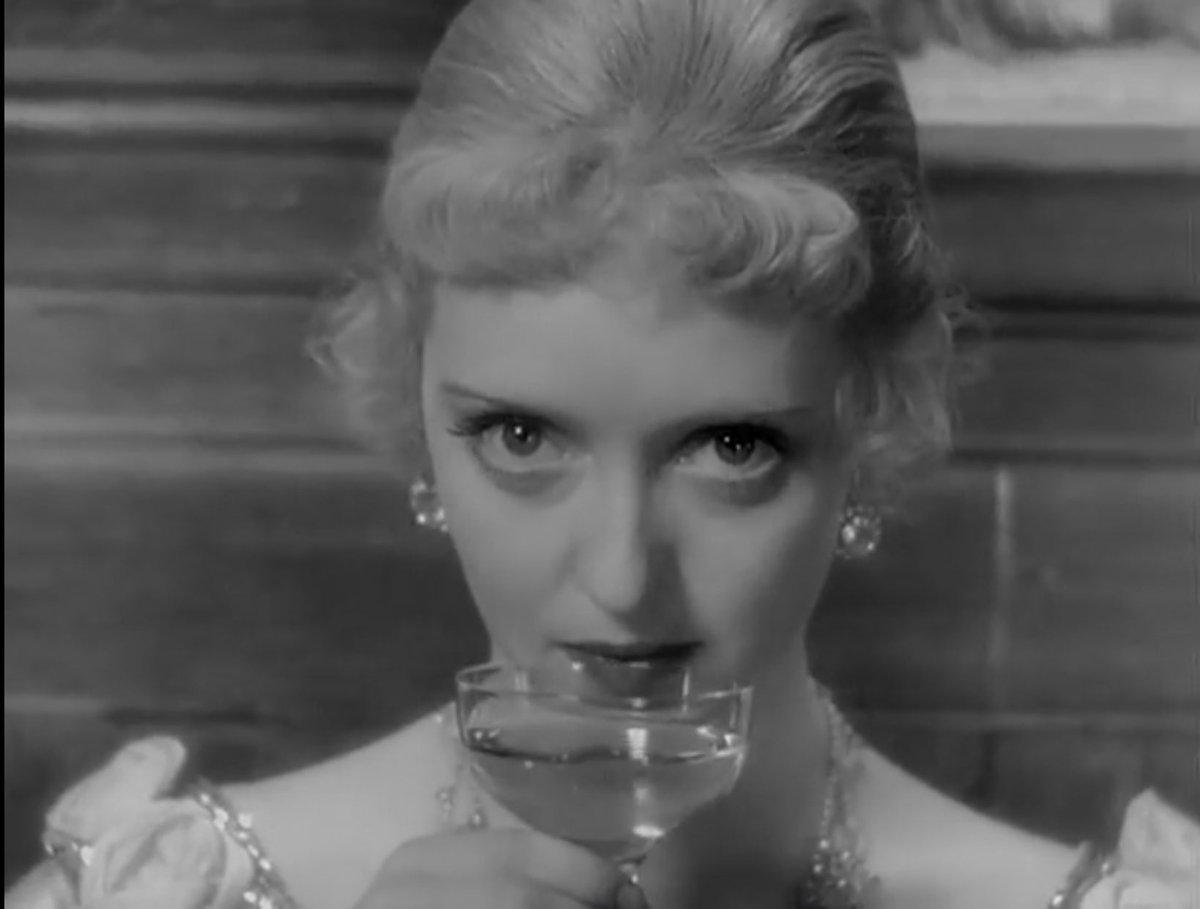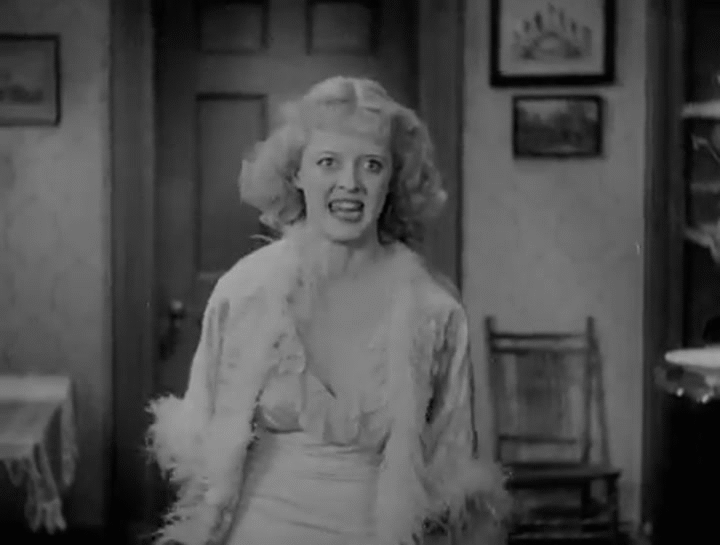ESTA CRÍTICA TEM SPOILERS
THIS REVIEW HAS SPOILERS
Quase todos os artistas, não importa
qual arte façam, têm um trabalho considerado aquele que muda tudo. O livro que
se tornou um best-seller e deu a seu autor muitos prêmios. A pintura que foi
vendida a uma grande galeria e deu a seu pintor notoriedade. Ou o filme que fez
o mundo todo olhar para um ator ou atriz e dizer: “que talento!”. Para Bette
Davis, o filme que mudou tudo foi “Escravos do Desejo”, de 1934 - por vezes
também chamado de “Servidão Humana” - o 23º filme da carreira dela em Hollywood
- o que prova que são necessários muitos anos para fazer sucesso da noite para
o dia.
Almost all artists, no matter the art they make,
have one work labeled as a “big break”. That book that became a best-seller and
gave its author many prizes. That painting that was sold to a big gallery and
gave its painter notoriety. Or that movie that made everybody look at an actor
or actress and say: “what a talent!”. For Bette Davis, the big break came with
1934’s “Of Human Bondage”, the 23rd film of her career in Hollywood - proving
that it takes many years to become an overnight sensation.
Em Paris, Philip Carey (Leslie
Howard) pergunta a seu professor de pintura se algum dia ele será um grande
pintor. O professor é sincero: seu pupilo pode conhecer a técnica, mas lhe
falta a criatividade de um gênio. Desapontado, Philip decide voltar para
Londres e seguir a mesma carreira do pai, tornando-se médico. Detalhe
importante: Philip manca por causa d dum defeito de nascença, e isso o
envergonha muito.
In Paris, Philip Carey (Leslie Howard) asks his
painting teacher if someday he would be a great painter. The teacher is
sincere: his pupil may know the technique, but lacks the creativeness of a
genius. Bummed, Philip decides to go back to London to follow his father’s footsteps
and become a doctor. An important detail: Philip has a limp due to a birth
defect and is very self-conscious about it.
Já em Londres, um amigo pede que ele
o ajude a conquistar uma garota - por causa de sua estadia em Paris, o amigo
acredita que Philip tem mais experiência com as mulheres. A garota em questão é
a garçonete Mildred Rogers (Bette Davis). Ela e Philip trocam farpas no
primeiro encontro - e Philip usa a péssima cantada “você deveria sorrir mais”. Mildred se
enoja com o defeito físico dele.
Once in London, he is asked to help a friend
conquer a girl - because he lived in Paris, his friend thinks Philip has more
experience with girls. The girl in the picture is waitress Mildred Rogers
(Bette Davis). She and Philip end up being rude with each other in their first
meeting - with Philip even using, ugh, the pick-up line “you should smile
more”. Mildred is disgusted by his limp.
Philip a convida para jantar, e ela
aceita. Ele sonha com ela, a convida para sair muitas outras vezes. Philip está
obcecado. Mas Mildred é livre - ela é o tipo de personagem feminina livre que o
Código Hays mataria muito em breve. Ela flerta com outros clientes, sai com
eles e parece não se importar com convites porque recebe muitos deles, o tempo
todo.
Philip invites her to go out for dinner, and she
accepts. He dreams about her, he invites her out again and again. Philip is
obsessed. But Mildred is free - she is the kind of free female character that
the Production Code would soon kill. She flirts with other customers, goes out
with them and seems unbothered by any invitation because she receives so many
so often.
Philip tenta esquecer Mildred saindo
com a escritora Norah (Kay Johnson). Agora a situação é inversa: enquanto
Philip era apaixonado por Mildred e ela não o amava, agora temos Norah
apaixonada por Philip sem ser correspondida. Um dia, Mildred volta - e eu
adoraria ver a versão de Norah da história toda, porque temos filmes demais
sobre mulheres que arruinaram a vida dos homens, mas poucos sobre mulheres que
superaram um amor não correspondido.
Philip tries to forget Mildred by dating writer
Norah (Kay Johnson). Now the situation is the inverse: while Philip was devoted
to Mildred and she didn’t love him, now we have Norah being devoted to Philip
but not being loved by him. Eventually, Mildred comes back - and I’d love to
see Norah’s version of the whole story, because there are so many stories of
women who ruined men’s lives, but so few of the women who got over loving
someone and not being loved back.
Reginald Owen interpreta Thorpe
Athelny, um homem que é paciente de Philip, e depois se torna seu amigo e
casamenteiro. Ele é construído para ser interessante e criar uma atmosfera
acolhedora, mas acaba sendo apenas chato e inconveniente. A filha de Athelny,
Sally, é interpretado por Frances Dee. Sally é uma garota doce cuja chance de
romance com Philip é arruinada pela, adivinhe, volta de Mildred.
Reginald Owen plays Thorpe Athelny, a man who is
first Philip’s patient, then becomes kind of a friend and matchmaker. He is
built to be amusing and create a cozy atmosphere, but ends up being only
annoying and inconvenient. Athelny’s daughter, Sally, is played by Frances Dee.
Sally is a sweet girl whose chance with Philip is ruined by, you guessed it, Mildred’s
return.
“Escravos do Desejo” é baseado num
romance de W. Somerset Maugham. O autor também escreveu “O Fio da Navalha”, que
deu origem a um filme brilhante de 1946. Enquanto “O Fio da Navalha” é uma obra
mais espiritual, “Escravos do Desejo” trata dos sentimentos mais crus, como
amor, luxúria, desespero, nojo e raiva.
“Of Human Bondage” is based on a romance by W.
Somerset Maugham. The author also wrote “The Razor’s Edge”, which was the basis
for a brilliant film made in 1946. While “The Razor’s Edge” is a more spiritual
work, “Of Human Bondage” is all about the rawest feelings, like love, lust,
despair, disgust and anger.
Bette Davis está simplesmente sublime
neste filme. Ela é má, mas profundamente humana, e sua transformação é
admirável - mas não no bom sentido. Por isso, foi um choque quando ela não foi
indicada ao Oscar de Melhor Atriz. No começo dos anos 1930, a Academia permitia
que novos candidatos fossem adicionados à cédula na hora da votação, e ela
também revelava em que posição os indicados ficaram depois da votação -
primeiro, segundo, terceiro lugar e assim por diante. Bette Davis foi tão
constante na indicação informal que acabou em terceiro lugar, à frente de Grace
Moore, indicada oficialmente pela Academia. O Oscar foi para Claudette Colbert naquele
ano e, quando um candidato indicado extra-oficialmente ganhou o prêmio - o que
aconteceu na categoria de Melhor Fotografia em 1935 - a Academia proibiu esse
tipo de indicação.
Bette Davis is nothing but sublime in this movie.
She is vile, but true to the human character, and her transformation is one to
admire - not in the good sense. So, it was a shock when she wasn’t nominated
for a Best Actress Oscar. Back in the early 1930s, the Academy allowed write-in
votes, and it also revealed the positions the nominees eventually came in -
first, second, third places and so on. Not only Bette was a write-in in the
category, but she also came in third place, in front of real nominee Grace
Moore. The Oscar went to Claudette Colbert that year and, when a write-in
candidate actually on the award - the Cinematography award in 1935 - the
Academy forbade the practice.
Bette Davis estava procurando papéis
mais substanciais do que os que lhe eram oferecidos na Warner Brothers. Ela
encontrou o que procurava em “Escravos do Desejo”, da RKO, e no final os
executivos da Warner fizeram campanha contra ela na corrida do Oscar. Este
filme foi um ponto de virada na carreira de Bette, e a prova de que ela nunca
teve medo: ela não teve medo de interpretar personagens antipáticas como
Mildred, não teve medo de ficar “feia” se isso fosse feito pelo realismo do
papel, e nunca teve medo de exagerar – ou ser maior do que a própria vida.
Bette Davis was looking for juicier roles than the
one she was being offered at Warner Brothers. She found what she was looking
for in RKO’s “Of Human Bondage”, and eventually Warner executives campaigned
against her at the Oscar race. This film was a turning point in Davis’s career,
and the proof that the actress was never afraid: she was not afraid of playing
unsympathetic roles like Mildred, not afraid of becoming “ugly” for a role if
it demanded realism, and never afraid to be over the top – or larger than life.
This is my contribution to the Fourth Annual Bette Davis blogathon, hosted by Crystal at In the Good Old Days of Classic
Hollywood.







No comments:
Post a Comment